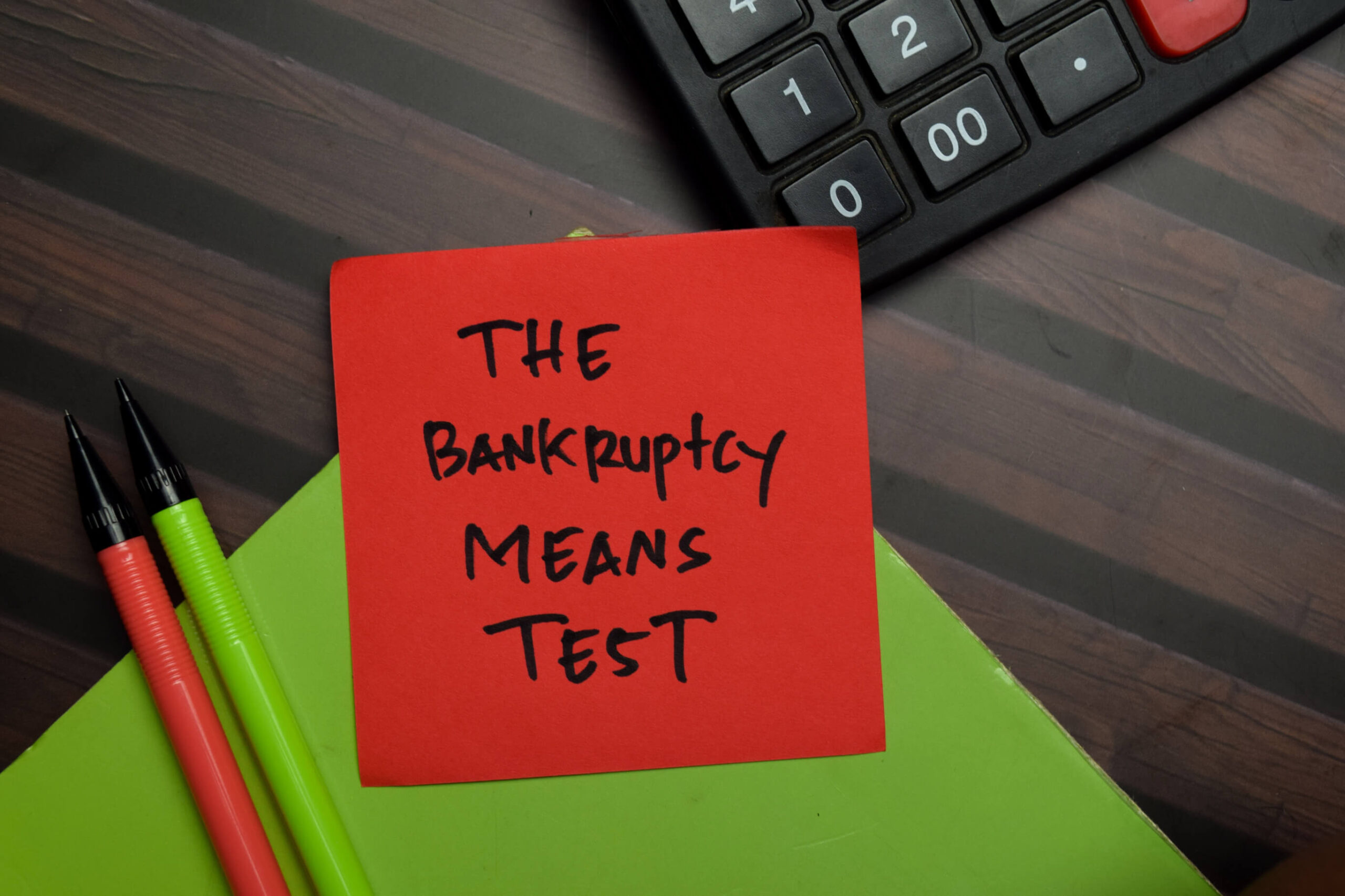Are you facing financial challenges and considering Chapter 7 bankruptcy as a potential solution? If so, the means test is a crucial hurdle you must overcome.
It’s a critical step in determining your eligibility. But don’t worry: this article is here to help guide you through the process. We will break down the considerations step by step.
Imagine the relief of qualifying for Chapter 7 bankruptcy. You can eliminate your debts and get a fresh financial start. Picture the weight lifted off your shoulders as you regain control.
You can start moving toward that reality with us today. Keep reading and ask us for a referral to legal help!
Understanding the Chapter 7 Means Test
The Chapter 7 Means Test is a vital gateway in the bankruptcy journey. It determines your eligibility and the potential to wipe the slate clean of your debts.
Grasping its importance is critical. The means test acts as the deciding mechanism for whether your situation warrants legal protection. As a result, it rigorously examines your financial standing. The court system will scrutinize your income against your expenses to determine if you can repay your debts.
The means test started under the Bankruptcy Abuse Prevention and Consumer Protection Act (BAPCPA). Since 2005, it has existed to protect the integrity of the Chapter 7 bankruptcy process. The goal is to prevent misuse by higher-income individuals and steer them toward Chapter 13.
The test evaluates your financial profile by comparing your income to the state median. Falling below this level typically means you can file for Chapter 7. However, making money above this threshold invites further scrutiny of your disposable income.
Gathering Your Financial Information
Start by creating a detailed checklist of necessary items. Include pay stubs, tax returns, bank statements, and records of all income sources. Additionally, collection documentation that proves your monthly expenses, such as rent payments or shopping receipts.
You may have many of the records you need. However, you may also need to contact relevant institutions or dig into old files. It is also worth obtaining your credit report from the three major credit bureaus: Equifax, Experian, and TransUnion. These reports offer a complete picture of your financial obligations, including your outstanding debts.
Calculating Your Current Monthly Income (CMI)
Chapter 7 means tests hinge on the CMI calculation. This figure is pivotal in determining whether you qualify. Finding your CMI means averaging your monthly income for the six months before you filed for bankruptcy.
However, CMI does not include all income types. For instance, it excludes Social Security payments in most cases.
You can begin by assembling all relevant financial documents. These items include pay stubs, tax returns, and other income documents. Next, sum up the total for each of the prior six months. Divide this total by six, and you have your CMI.
It is vital to be thorough and precise during this process. Any errors or omissions could influence your eligibility. Consequently, you may want an attorney to complete this task since they will know what to include or exclude.
Deducting Allowable Expenses
Allowable experiences have recognition from the court as necessary for your daily life. Therefore, you can deduct this total from your disposable income. This reduction can also increase the likelihood of qualifying for Chapter 7.
This number comes from subtracting allowable expenses from your CMI. The outcome is a decisive factor for your petition. The balance between your income and these numbers shapes your path toward discharging your debts.
There are many allowable expenses to consider that most cannot know unless they have studied them. Some categories are apparent, like housing, utility bills, transportation, etc. You could also include groceries, clothing, healthcare, and childcare here. An accurate accounting of these costs can be a game-changer.
When figuring out your allowable expenses for bankruptcy, it’s all about the details. You’ll need to know what you can and can’t include, and there are fixed limits to consider.
Your situation might change what you can claim, too. Getting everything accurate can be tricky, so teaming up with a bankruptcy lawyer can be beneficial. They can help you understand what paperwork you need and make sure you’re counting every expense. The better your numbers, the more you can show you’re eligible for Chapter 7.
Consult a Bankruptcy Attorney Today
Passing the means test for Chapter 7 is a pivotal step toward financial freedom. It may seem daunting, but it only takes some knowledge and guidance to get through it.
Seeking legal help from an attorney can help secure your success. Our representatives are available 24/7 to refer you to a local bankruptcy lawyer ready to help!
Call (866) 345-6784 or submit this quick form today!

